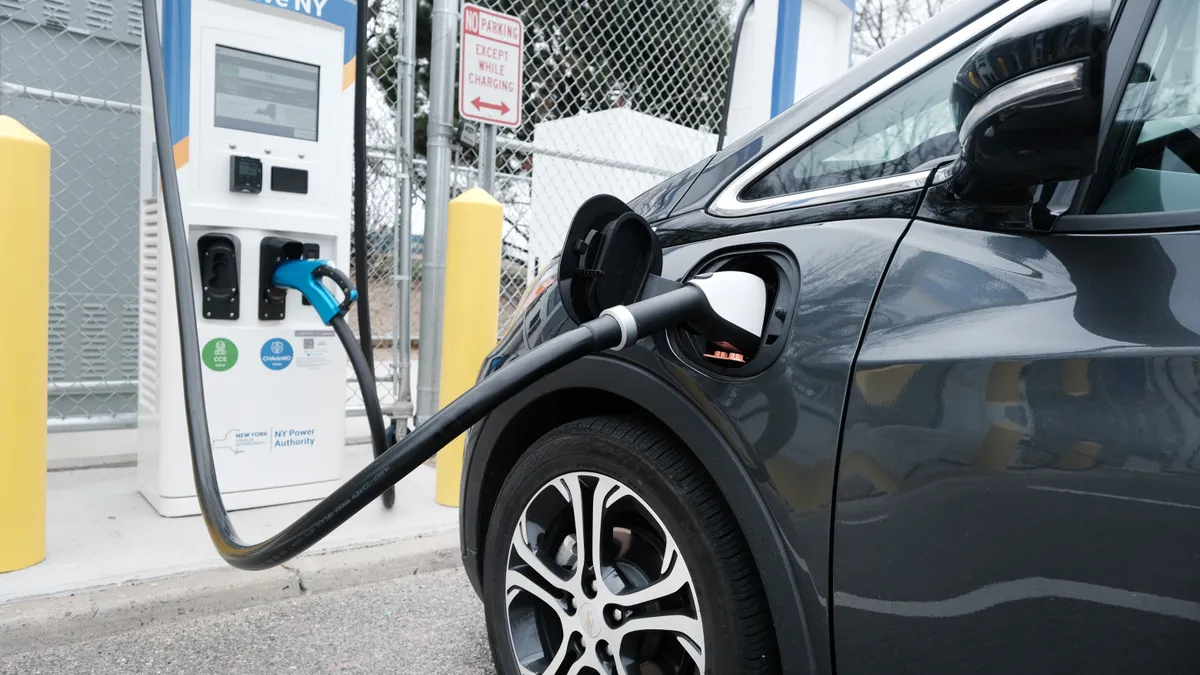Xcel Energy wants to withdraw its Minnesota electric vehicle plan that includes owning and operating more than 700 direct current fast chargers, or DCFC, after the Public Utilities Commission slashed the utility’s rate request last month.
“We know EVs are the future of transportation, and we will help our customers and communities make the transition, but we also need constructive outcomes in rate reviews to help drive the state forward,” the utility said in a June statement.
The PUC's decision approved a 9.6% rate increase over three years; Xcel had proposed an increase of 21.2%.
In a June 14 filing, the state’s Department of Commerce said it supports allowing Xcel to withdraw its charger plan — though not because of the utility’s rates.
According to the DOC, Xcel has not constructed any of 21 Minnesota charging stations the utility received approval for in 2022. It also has no operating stations in Colorado or New Mexico, where it received similar authorizations.
“Recent developments show that Xcel should reassess how it can best support transportation electrification," Attorney General Keith Ellison wrote. “Xcel has not shown that it can build, operate, and maintain even the limited number of DCFC Stations it has received approval for in Minnesota and in other jurisdictions.”
Those facts “call into question [Xcel’s] aptitude at operating in the EV space,” Ellison said.
Xcel was not able to immediately comment for this story.
According to the DOC filing, costs for the 21 stations have risen 40% since they were approved, to about $7 million, and none have moved beyond the “pre-construction” stage. The utility’s full transportation plan in Minnesota has a price tag north of $190 million, and it has filed a similar plan in Colorado.
“That's essentially taking over the entire marketplace. There's no one who would be able to compete,” said Ryan McKinnon, a spokesperson for the Charge Ahead Partnership which represents businesses that want to expand into the electric vehicle charging space, including convenience stores and gas stations.
The group opposes utility ownership of charging infrastructure, arguing incumbent utilities have too many advantages.
Not many businesses “are willing to take the huge financial risk” of installing EV infrastructure “if the utility is going to start setting them up and basically passing along all their capital cost to ratepayers, and undercutting the private market,” McKinnon said. “It's a big disincentive.”
The Minnesota DOC recommended regulators condition the withdrawal of Xcel’s plan on the utility’s commitment to file another transportation electrification plan by November.














